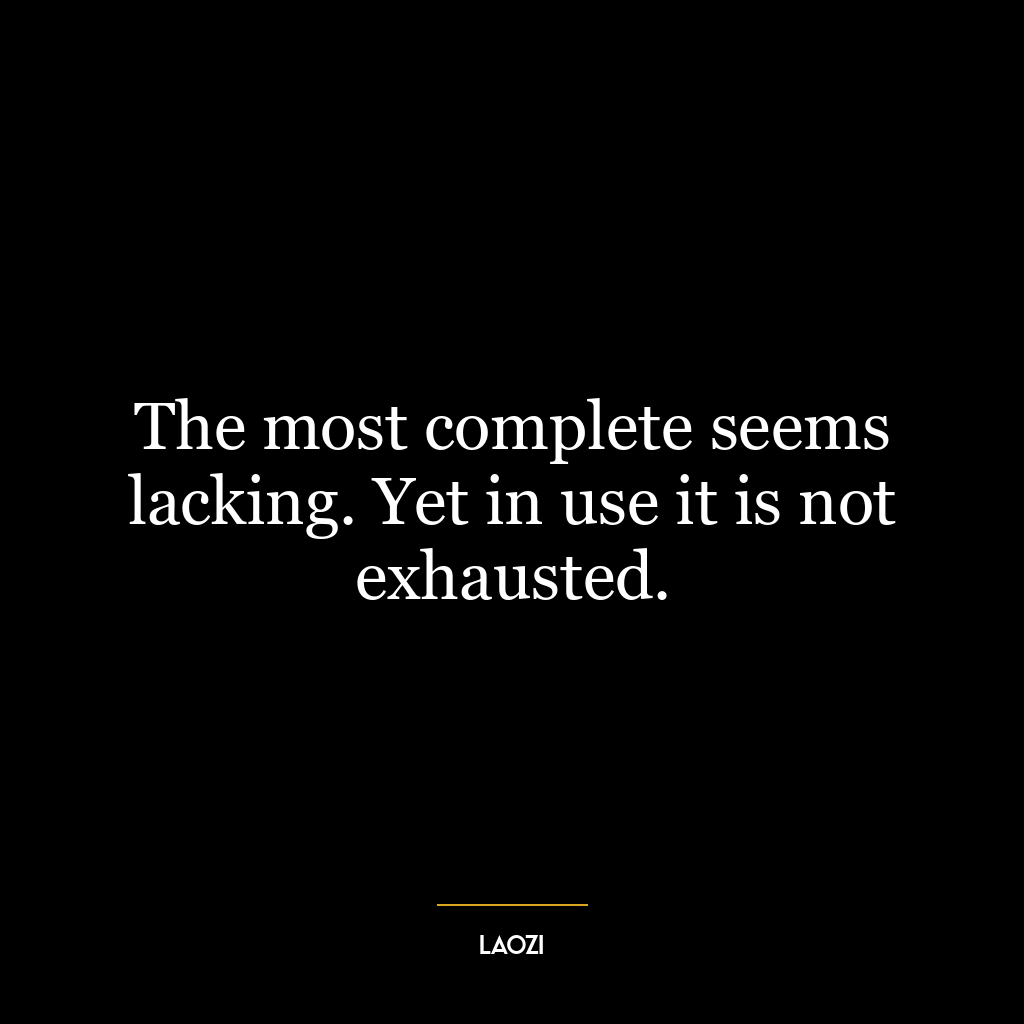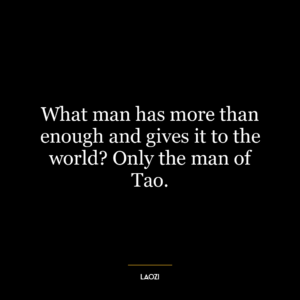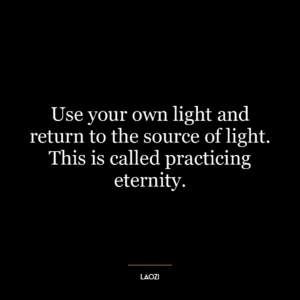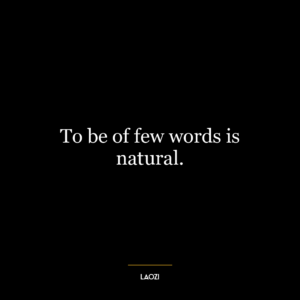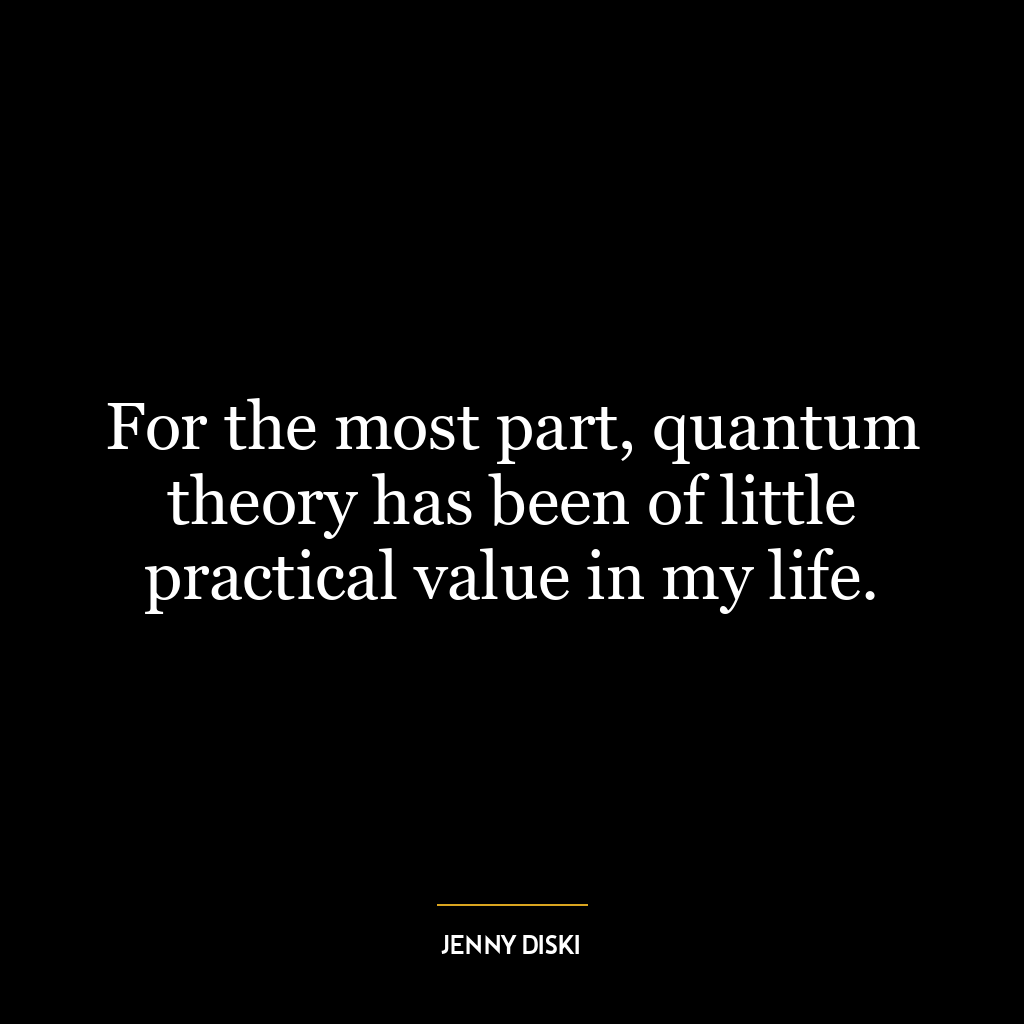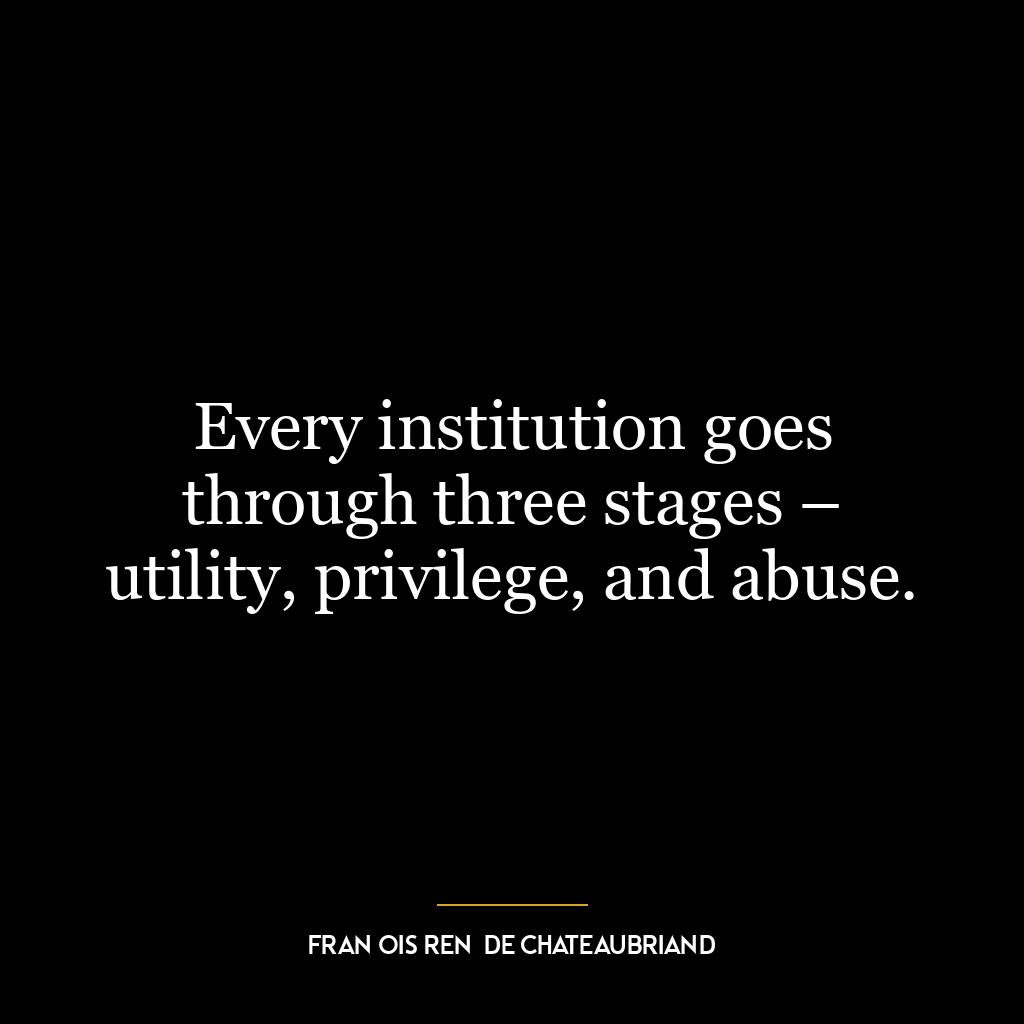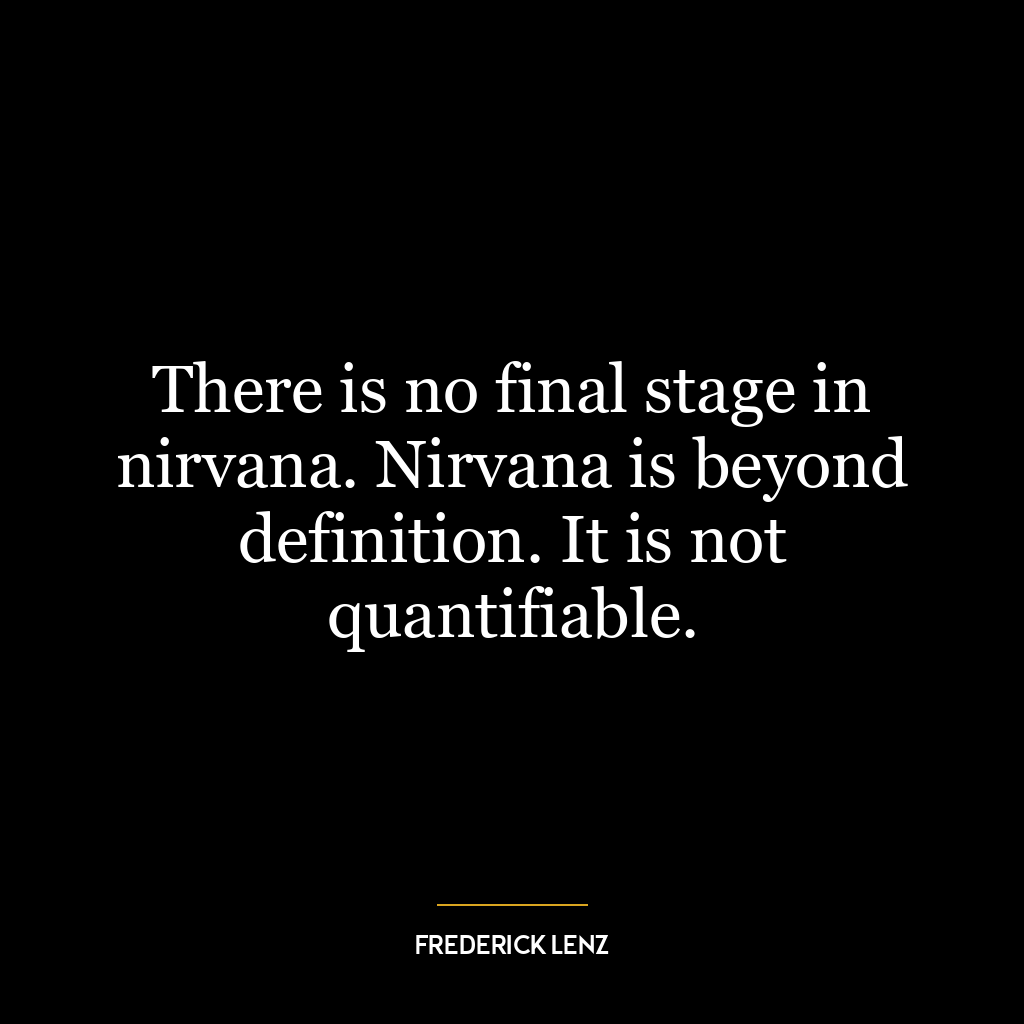The most complete seems lacking. Yet in use it is not exhausted.
This quote by Laozi suggests that something that appears to be perfect or complete may seem to lack something, implying that perfection is subjective and not always as fulfilling as it may initially appear. On the other hand, something that is being used or is in operation, despite its apparent flaws or shortcomings, never runs out or gets exhausted, implying a state of constant renewal or replenishment.
This concept can be seen as a paradox, where completeness is associated with lack, while usage is associated with inexhaustibility. It implies that the true value or worth of something is not in its perceived completeness, but in its utility or application.
Applying this to today’s world, we often chase after what we perceive as perfect or complete, whether it’s a perfect job, perfect relationship, or perfect life. However, the pursuit of perfection often leads to dissatisfaction, as what we perceive as perfect is often lacking in some way. On the other hand, when we use what we have, even if it’s not perfect, we find that it’s not exhausted. This can be seen in the way we use our skills, resources, or relationships. They may not be perfect, but they are not exhausted when used, and often, they grow and improve with use.
In terms of personal development, this quote encourages us to focus less on achieving perceived perfection and more on using and improving what we have. It suggests that growth and fulfillment come not from the pursuit of perfection, but from the use and application of our skills, resources, and relationships. It’s about finding value in what we have and using it to the best of our ability, rather than constantly striving for something more perfect or complete.

